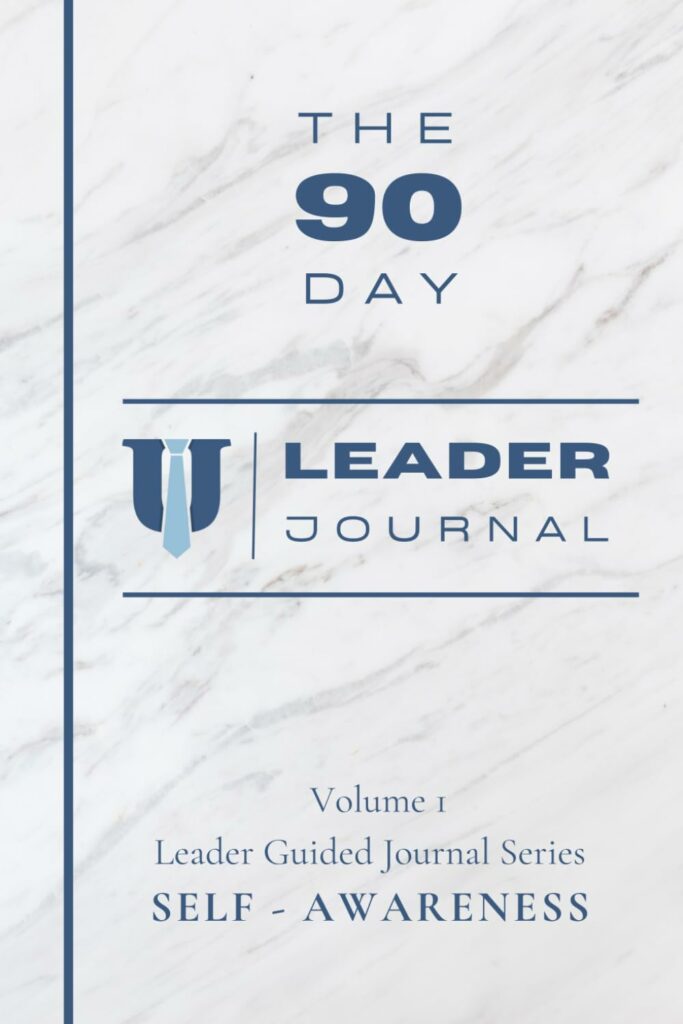
Welcome to our article on journaling for emerging leaders! If you’re an aspiring leader aiming to enhance your leadership skills, journaling can be a powerful tool for personal growth and career success.
Table of Contents
Introduction
Journaling provides a safe and private space for self-reflection, allowing you to explore your thoughts, emotions, and experiences. It helps you gain valuable insights into your strengths, weaknesses, and areas for improvement, ultimately contributing to your leadership development.
Whether navigating important decisions, nurturing a leadership mindset, or reflecting on your leadership journey, journaling can play a significant role in your growth as an emerging leader. It allows you to delve deeper into your goals, values, and aspirations, helping you become more self-aware and intentional.
In the following sections, we will explore the numerous benefits of journaling for leadership development, including enhancing decision-making skills, nurturing a leadership mindset, and developing essential leadership skills. We’ll also discuss how journaling can unlock your leadership potential, be utilized in leadership training programs, and share inspiring leadership success stories that highlight the impact of journaling on career growth.
Stay tuned to discover how journaling can empower emerging leaders like yourself and pave the way to leadership success!
Key Takeaways:
- Journaling is a powerful tool for emerging leaders’ personal growth and career success.
- It provides a safe space for self-reflection and helps gain insights into strengths and weaknesses.
- Journaling contributes to leadership development by enhancing decision-making skills and nurturing a leadership mindset.
- It aids in developing essential leadership skills, such as conflict resolution and different leadership styles.
- Journaling can unlock leadership potential, be utilized in training programs, and inspire leadership success stories.
The Benefits of Journaling for Emerging Leader Development
Journaling is a powerful tool for leadership development, offering numerous benefits to emerging leaders. Through self-reflection and introspection, journaling facilitates personal and professional growth, enhancing leadership skills and abilities.
One of the key advantages of journaling for leadership development is the cultivation of self-reflection. By dedicating time to reflect on past experiences, achievements, and challenges, leaders gain valuable insights into their strengths, weaknesses, and areas for improvement. This process of self-reflection allows leaders to identify patterns, make connections, and develop a deeper understanding of their leadership style.
Moreover, journaling supports professional growth by enabling leaders to set goals, track progress, and evaluate their development over time. By regularly documenting goals, leaders can measure their accomplishments and identify areas where further growth is required. This self-monitoring and accountability foster a sense of purpose and drive for continuous learning and improvement.
Additionally, journaling provides a safe space for leaders to explore and work through complex thoughts and emotions. It allows them to express their thoughts freely, without judgment, and gain clarity on their values, beliefs, and aspirations. This process promotes self-awareness, emotional intelligence, and better decision-making skills, which are crucial for effective leadership.
Journaling allows leaders to increase their self-awareness, develop emotional intelligence, and enhance decision-making skills by providing a dedicated space for reflection and introspection.
Leadership development can be further enhanced through the use of leadership journal prompts. These prompts are thought-provoking questions that encourage leaders to delve deeper into their experiences, values, and leadership approaches. They catalyze self-exploration and self-discovery, fostering personal and professional growth.
Example Leadership Journal Prompts:
- Reflect on a recent leadership challenge you faced. How did you handle it, and what did you learn from the experience?
- Describe a time when you felt most empowered as a leader. What factors contributed to this feeling?
- Identify three leadership values that are important to you. How do these values influence your decision-making?
- Think about a leader you admire. What qualities or characteristics do they possess that you aspire to develop?
By incorporating journaling into their leadership development journey, emerging leaders can enhance their self-awareness, strengthen their decision-making abilities, and foster professional growth. Through regular self-reflection and thought-provoking prompts, leaders can unlock their full potential and become effective, influential change agents.
| Benefit | Description |
|---|---|
| Increased self-awareness | Journaling facilitates introspection, allowing leaders to gain insight into their strengths, weaknesses, and areas for growth. |
| Enhanced decision-making skills | The process of journaling supports better decision-making by promoting self-reflection, emotional intelligence, and clarity of thought. |
| Professional growth | Through goal-setting, progress tracking, and self-evaluation, journaling fuels continuous learning and improvement, propelling leaders in their professional development. |
| Self-expression and emotional well-being | Journaling provides a safe space for leaders to express their thoughts, feelings, and emotions, promoting self-awareness and emotional intelligence. |
Enhancing Decision-Making Skills through Journaling
Journaling is a tool for self-reflection and personal growth and a valuable resource for enhancing decision-making skills in emerging leaders. By engaging in reflective writing and thoughtful analysis, individuals can develop a deeper understanding of their thought processes and biases, enabling them to make more informed and confident decisions.
One effective way to leverage journaling for decision-making skills is using leadership journal prompts. These prompts stimulate critical thinking and prompt individuals to consider different perspectives and potential outcomes. Here are a few examples of leadership journal prompts that can help enhance decision-making skills:
- Reflect on a recent decision you made. What were the factors that influenced your decision? Were there any biases or assumptions that may have influenced your judgment?
- Describe a challenging decision you are currently facing. What are the potential options? What are the pros and cons of each option?
- Think about a time when you made a decision that had unintended consequences. What lessons did you learn from that experience?
By regularly engaging with these leadership journal prompts, emerging leaders can hone their decision-making skills and develop a more strategic and thoughtful approach to problem-solving. Journaling provides a safe space to explore different perspectives, weigh alternatives, and reflect on past decisions, ultimately leading to more effective leadership and better outcomes.
Decision-Making Journaling Framework
| Step | Description |
|---|---|
| 1 | Identify the decision to be made |
| 2 | Gather relevant information and gather different perspectives |
| 3 | Evaluate the pros and cons of each option |
| 4 | Consider potential risks and consequences |
| 5 | Reflect on personal values and ethical considerations |
| 6 | Make a decision and record the rationale |
| 7 | Reflect on the outcome, learn from the experience, and adjust future decision-making processes |
A decision-making journaling framework can provide a systematic approach to decision-making, ensuring that no important factors are overlooked and enabling leaders to make well-informed choices. The table above outlines a step-by-step process to guide individuals through decision-making.
By incorporating journaling into their leadership practice, emerging leaders can sharpen their decision-making skills, promote self-awareness, and foster a more thoughtful and strategic approach to problem-solving. The combination of reflective writing and leadership journal prompts creates a powerful tool for personal and professional development, enabling leaders to navigate complex challenges with confidence and clarity.
Nurturing a Leadership Mindset Through Journaling

Journaling is not just a way to record thoughts and experiences; it can also be a powerful tool for nurturing a leadership mindset in emerging leaders. By committing thoughts to paper, reflecting on past experiences, and setting goals for the future, journaling can help shape and develop the mindset necessary for effective leadership.
Leadership Mindset:
A leadership mindset is the collection of beliefs, values, attitudes, and thoughts that shape a leader’s behavior and decision-making. It is a mindset focused on growth, adaptability, resilience, and the ability to inspire and influence others.
Through journaling, emerging leaders can cultivate a positive leadership mindset by:
- Encouraging self-reflection: Journaling allows individuals to reflect on their actions, decisions, and interactions. By self-reflecting, emerging leaders can gain insights into their strengths, weaknesses, and areas for improvement. This self-awareness is crucial for developing a mindset that embraces continuous learning and growth.
- Setting goals and intentions: Journaling allows emerging leaders to set clear goals for themselves and articulate their vision for success. By outlining their objectives and aspirations in writing, they can clarify their path forward and stay focused on their purpose and long-term vision.
- Overcoming challenges: Leadership often comes with its fair share of challenges and obstacles. Journaling provides a safe space for emerging leaders to explore and document these challenges, allowing them to gain perspective, brainstorm solutions, and identify lessons learned. By doing so, they can develop a resilient mindset that embraces challenges as opportunities for growth.
- Cultivating a positive mindset: The leadership journey is not always smooth sailing, and emerging leaders may face setbacks and disappointments. Journaling offers a platform for practicing gratitude, positive affirmations, and reframing negative experiences. This process can help nurture a resilient, optimistic mindset that empowers leaders to persevere and overcome adversity.
Journaling can also assist emerging leaders in developing essential leadership skills and strategies, which will be explored in the next section.
Journaling as a Tool for Leadership Journey Reflection
Journaling is a powerful tool for emerging leaders to reflect upon their leadership journey, overcome challenges, and navigate obstacles. As leaders progress in their careers, they encounter situations that test their abilities and require strategic decision-making. By journaling, leaders can gain valuable insights into their experiences, emotions, and reactions, enabling them to grow and develop as effective leaders.
Through journaling, leaders can document their thoughts, experiences, and lessons learned along their leadership journey. This self-reflection helps leaders gain a deeper understanding of their leadership style, strengths, and areas for improvement. By regularly revisiting their journal entries, leaders can identify patterns and trends in their decision-making, recognize recurring challenges, and devise strategies to overcome them.

Guided Journal Resource
The 90-Day Leader’s Journal – Volume 1 Self-Awareness
Journaling allows leaders to explore their thoughts and feelings about challenging situations, providing a safe space to express fears, doubts, and uncertainties. Leaders can gain clarity, perspective, and a renewed sense of purpose by writing about their leadership challenges. Additionally, journaling enables leaders to analyze and evaluate their responses to obstacles, empowering them to develop strategies for future similar situations.
“Journaling provides an opportunity for leaders to reflect on their challenges and obstacles, fostering personal growth and resilience.”
Leadership journeys are often filled with setbacks, failures, and unexpected hurdles. Journaling can help leaders navigate these obstacles by serving as a record of their experiences and offering guidance and inspiration during challenging times. Leaders can build resilience and develop a proactive mindset by reflecting on past challenges and the strategies employed to overcome them.
Furthermore, journaling encourages leaders to explore alternative perspectives and consider different approaches to problem-solving. By engaging in open and honest self-reflection through journaling, leaders can better understand their biases and limitations, enabling them to make more informed decisions and approach challenges with empathy and inclusivity.
Example – Reflection Journal Prompts:
- What were the key challenges I faced during the past week/month/year, and how did I address them?
- What have been the most significant obstacles in my leadership journey so far, and how can I overcome them?
- Which leadership skills do I need to strengthen to navigate the challenges I am currently facing?
- How do my past experiences and lessons learned inform my approach to current leadership challenges?
- What support or resources do I need to overcome obstacles and further develop as a leader?
By incorporating journaling into their leadership practice, emerging leaders can gain valuable insights, foster personal growth, and develop effective strategies to overcome challenges. Through self-reflection and exploration, journaling helps leaders navigate their leadership journey with authenticity, resilience, and the ability to inspire and empower those around them.
Developing Leadership Skills with Journaling

Journaling is not just a personal reflective practice; it can also be a powerful tool for developing essential leadership skills. By committing thoughts and experiences to paper, emerging leaders can gain valuable insights, enhance their self-awareness, and strengthen their overall leadership capabilities.
One key aspect of developing leadership skills through journaling is the exploration of different leadership styles. Journaling allows leaders to reflect on their own leadership approaches and identify areas for improvement. It also provides an opportunity to study and learn from the leadership styles of successful leaders in various industries and contexts.
Another area where journaling proves beneficial is conflict resolution. Effective leadership requires the ability to navigate and constructively resolve conflicts. Through journaling, leaders can reflect on past conflicts, analyze strategies, and evaluate outcomes. This self-reflection allows for identifying patterns or biases and developing more effective conflict-resolution skills.
“Journaling allows leaders to reflect on their own leadership approaches and identify areas for improvement.”
Benefits of Journaling for Leadership Skills Development:
- Enhances self-awareness
- Facilitates exploration of different leadership styles
- Improves conflict resolution skills
- Fosters critical thinking and problem-solving abilities
- Promotes emotional intelligence and empathy
- Aids in decision-making processes
- Encourages transparent communication
By incorporating regular journaling practices into their leadership development journey, emerging leaders can continuously refine their leadership skills, deepen their understanding of their own leadership style, and cultivate effective strategies for conflict resolution. Journaling provides a safe and private space for introspection, growth, and transformation.
| Leadership Skills | Description |
|---|---|
| Communication | Expressing ideas clearly and effectively, active listening, and building strong relationships |
| Decision-Making | Analyzing information, evaluating options, and making sound decisions |
| Adaptability | Flexibility, openness to change, and resilience in dynamic environments |
| Strategic Thinking | Long-term planning, setting goals, and aligning actions with organizational objectives |
| Team Building | Developing and nurturing high-performing teams, fostering collaboration, and motivating team members |
Unlocking Leadership Potential through Journaling

Journaling is a powerful tool that can unlock the leadership potential within emerging leaders. By committing thoughts and experiences to paper, aspiring leaders can gain insights, develop self-awareness, and enhance their leadership skills. However, journaling can become even more impactful when combined with mentoring and coaching, providing valuable guidance and support on the leadership journey.
Mentoring for Leaders
Mentoring is crucial in shaping leaders and helping them reach their full potential. Through one-on-one guidance and support, mentors provide emerging leaders practical advice, share their experiences, and offer valuable feedback. When incorporated into a journaling practice, mentoring can help leaders reflect on their entries, gain new perspectives, and identify areas for growth.
“My mentor’s guidance has been invaluable in my leadership journey. With their support, I was able to reflect on my journal entries and gain new insights into my strengths and areas for improvement. Their advice and encouragement have pushed me to step out of my comfort zone and take on new challenges.”
By incorporating mentorship into their journaling process, emerging leaders can unleash their leadership potential, foster personal growth, and accelerate their development as effective leaders in their respective fields.
Leadership Coaching with Unlit Leadership
Leadership coaching is a transformative pathway for unleashing the inherent leadership capabilities within individuals. At Unlit Leadership, our coaching practice, we go beyond traditional coaching methods by offering a distinctive and empathetic approach tailored to leaders of color and those finding themselves as cultural minorities within their organizations. Our coaching practice provides a secure and confidential environment that encourages leaders to delve into their aspirations, establish objectives, and devise effective strategies for achievement.
Integrating journaling into our coaching methodology amplifies the impact, serving as a powerful tool for self-reflection and personal growth. Leaders are encouraged to use their journals as a foundation for coaching sessions, where they can explore their thoughts, feelings, and experiences in depth. At Unlit Leadership, we leverage these journal entries to help leaders discern patterns, confront and overcome limiting beliefs, and formulate actionable plans rooted in their reflections.

Coaching Resource
Tailored Coaching for Diverse Leaders
Our coaching is deeply anchored in the principles of authenticity and success balancing. By employing targeted questioning and providing insightful guidance, we empower leaders to achieve clarity, enhance their decision-making abilities, and develop a leadership style that is genuinely their own. Our aim is to foster professional growth and support leaders in cultivating a sense of self that resonates with their core values and cultural identity.
Through Unlit Leadership’s coaching, leaders embark on a journey of self-discovery and development. We support them in harnessing the power of journaling to illuminate their path, enabling them to navigate the complexities of their roles with confidence and authenticity. By embracing both journaling and our specialized coaching, leaders can thrive in their personal and professional lives, making meaningful contributions to their organizations and communities.
Unleash Your Leadership Potential
Emerging leaders can unlock their leadership potential by embracing journaling and incorporating mentoring and coaching into their practice. Through self-reflection, guidance from mentors, and coach support, leaders can develop the necessary skills, mindset, and perspective to thrive in their roles.
Investing time in journaling, mentoring, and coaching is a transformative step towards becoming a successful leader. With each journal entry, leaders gain insights, reflect on experiences, and set intentions for growth, propelling themselves forward on their leadership journey.
Utilizing Journaling in Leadership Training and Workshops
Journaling is a powerful tool that can be effectively integrated into leadership training programs and workshops, offering participants a unique and introspective approach to professional development. By incorporating journaling exercises into these programs, emerging leaders can enhance their self-awareness, improve critical thinking skills, and foster a growth-oriented mindset.
During leadership training sessions, journaling can provide a structured framework for participants to reflect on their experiences, set goals, track progress, and document insights gained throughout the learning process. This practice not only helps individuals capture valuable lessons and highlight areas for improvement but also encourages self-reflection and self-accountability, key components of effective leadership.
One way to facilitate journaling in leadership training is by providing participants with specific prompts or questions related to the topics covered. For example, participants can be prompted to reflect on their leadership style and its alignment with the theories presented after discussing various leadership theories. These prompts catalyze deeper introspection and stimulate critical thinking, enabling individuals to uncover valuable insights about their leadership abilities.
Example Leadership Journal Prompts:
- Describe a recent leadership challenge you faced and the lessons learned from it.
- Identify three leadership skills you would like to develop further and create an action plan to strengthen them.
- Reflect on a time when you successfully resolved a conflict within a team. What strategies did you use, and what were the outcomes?
Furthermore, integrating journaling in leadership workshops can provide participants with a safe space to explore their emotions, fears, and aspirations, which are essential components of personal growth and leadership development. By encouraging individuals to express their thoughts and feelings through journaling, facilitators can create a supportive environment that fosters vulnerability, collaboration, and empathy among participants.
Journaling allows leaders to become more self-aware, to unravel and unpack their own experiences, and to gain a deeper understanding of their strengths and growth areas. It is a tool that leaders can use to put structure around their development and gain clarity around their goals and aspirations.
– Sarah Jackson, Leadership Coach
Moreover, incorporating journaling activities in leadership training and workshops provides participants with a tangible resource they can refer back to long after the program has ended. The journal becomes a repository of growth, showcasing personal reflections, lessons learned, and progress made. This not only aids in the integration of new knowledge but also serves as a source of inspiration and motivation during challenging times.
To further illustrate the benefits of utilizing journaling in leadership training and workshops, consider the following example of a journal entry:
| Date | Reflection |
|---|---|
| March 15, 2022 | Today’s workshop on effective communication reminded me of a recent team meeting where I struggled to convey my ideas clearly. I realized that I need to work on my active listening skills and speak with more conviction. Going forward, I will make a conscious effort to pause and listen attentively before responding. This reflection made me more aware of my communication style and the impact it has on my effectiveness as a leader. |
As demonstrated in the example above, the journal entry serves as a valuable record of an individual’s growth, highlighting specific areas for improvement and outlining actionable steps for future development.
In summary, journaling is a valuable tool that can effectively utilize in leadership training programs and workshops, offering numerous benefits for emerging leaders. By incorporating structured journaling exercises, providing prompts for reflection, and creating a supportive environment, leadership development professionals can enhance participants’ self-awareness, critical thinking skills, and overall growth mindset. Integrating journaling into these programs fosters personal and professional development, enabling emerging leaders to thrive and make a lasting positive impact.
Inspiring Leadership Success Stories through Journaling
Journaling has proven to be a powerful tool for personal and professional growth, and many inspirational leaders have discovered its benefits firsthand. These success stories and case studies demonstrate how journaling can unlock leadership potential, nurture a positive leadership mindset, and enhance decision-making skills.
One such success story is Michelle Rodriguez, CEO of a leading tech company. Michelle attributes her leadership success to her journaling practice, which she started early in her career. Through journaling, Michelle deeply understood her strengths and weaknesses, allowing her to make more informed decisions and navigate challenging situations confidently. She credits her journaling habit with helping her stay focused, motivated, and resilient as a leader.
Another inspiring leader who has achieved remarkable success through journaling is Mark Thompson, a renowned author and public speaker. Mark’s journaling practice has been integral to his personal growth and leadership development. By regularly reflecting on his experiences and emotions, Mark has cultivated a leadership mindset rooted in self-awareness and authenticity. His journal entries have become a source of inspiration for his bestselling books and influential keynote speeches.
“Journaling has been my trusted companion on my leadership journey. It has allowed me to explore my thoughts, clarify my visions, and learn from my triumphs and failures. I believe that journaling is a transformative tool for any aspiring leader.”
– Mark Thompson
In addition to successful individuals, organizations have also recognized the power of journaling in nurturing leadership capabilities. Google, for instance, encourages its employees to maintain journaling practices as part of its leadership development programs. The company has reported significant improvements in leadership skills, such as effective communication, empathy, and adaptability, among those who actively engage in journaling.
Real-life Leadership Case Studies
The following case studies highlight the diverse ways in which journaling has impacted leaders in various industries:
- Case Study 1: Jessica Chen, COO of a leading fashion brand, used journaling to overcome imposter syndrome and develop a strong leadership presence. By documenting her achievements and affirmations, Jessica built confidence, embraced her unique strengths, and emerged as an influential leader in the fashion industry.
- Case Study 2: John Stevens, a nonprofit executive, utilized journaling to navigate complex organizational challenges and foster teamwork. Through reflective journaling and team-building exercises, John transformed his leadership style, fostering a positive work culture and driving significant organizational growth.
- Case Study 3: Sarah Patel, a senior manager in the healthcare sector, incorporated journaling into her leadership coaching sessions. By encouraging her team members to journal and reflect on their experiences, Sarah fostered a culture of continuous learning and personal growth, resulting in higher employee engagement and improved patient care.
These success stories and case studies highlight how journaling can propel individuals and organizations toward leadership success. By embarking on a journaling journey, emerging leaders can unlock their potential, develop essential skills, and find inspiration from the experiences of others.
“Journaling has the power to transform leaders by providing a space for reflection, self-discovery, and continuous improvement. The stories of these successful leaders serve as a testament to the importance of journaling in leadership development.”
Conclusion
Journaling is a powerful tool for emerging leaders seeking personal and professional growth. Throughout this article, we have explored the benefits of journaling for leadership development, decision-making skills, nurturing a leadership mindset, reflecting on the leadership journey, developing essential leadership skills, unlocking leadership potential, utilizing journaling in training programs and workshops, and inspiring success stories.
By regularly journaling, emerging leaders can enhance their self-reflection, gain clarity, and make informed decisions. Journaling also helps foster a positive leadership mindset, enabling leaders to navigate challenges with resilience and perseverance.
Moreover, journaling is a valuable tool for reflecting on the leadership journey, identifying growth opportunities, and overcoming obstacles. It facilitates the development of crucial leadership skills, such as effective communication, conflict resolution, and adaptability.
In addition, journaling can unlock leadership potential by providing a space for self-discovery and growth. It complements mentorship and coaching, enabling emerging leaders to tap into their inherent talents and strengths.
Lastly, integrating journaling into leadership training programs and workshops fosters deeper engagement and self-awareness, leading to more impactful professional development.
In conclusion, journaling is an indispensable practice for emerging leaders. It empowers them to cultivate self-awareness, enhance their leadership skills, and pave the way for remarkable personal and professional success.



Leave a Reply